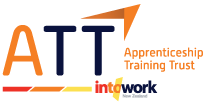

Significant changes are on the horizon for plumbing, gasfitting and drainlaying (PGD) apprentice training, and it’s important to stay informed to ensure your business and apprentices are prepared.
The Waihanga Ara Rau PGD Strategic Reference Group has spearheaded this initiative, aiming to enhance apprentice training by making it quicker and more efficient, while still producing skilled, industry-ready tradespeople.
ATT will help guide both you and your apprentices through these changes but here’s what you need to know about the upcoming training changes set to roll out in January 2025.
Why the change?
The current training model has been under scrutiny for some time. Feedback from the industry highlighted several issues: the training model wasn’t working efficiently, apprenticeships were taking too long to complete, and there were delays due to the Covid-19 pandemic and the transition of The Skills Organisation as part of the RoVE reforms. These delays had a knock-on effect, making it harder for apprentices to reach the Certifying level.
What’s new?
The new training system aims to address these issues by creating a more flexible and efficient model. Here are the key changes:
- Hybrid Training Model: The new model will combine compulsory block courses with flexible options for individual apprentices and employers. This means apprentices can complete their training either on the job or off the job, depending on what works best for them and their employers.
- Specialised Training: Apprentices can now undertake additional specialised training if they are working in specific areas. This is particularly important as new technologies and products evolve, requiring up-to-date skills and knowledge.
- Workplace Assessment: The new system will recognise workplace training as a valid method of assessment. This means that practical skills demonstrated on the job will count towards the apprentice’s qualifications, provided they meet the required standards and are verified by a licensed professional.
- Performance Standards: To be work-ready, apprentices must achieve a required level of competency by completing tasks to current and relevant legislation, standards, and codes, in an environmentally sustainable manner, within an acceptable timeframe, and in different and unfamiliar contexts.
Implementation and support
The transition to the new training model will begin in January 2025. Providers are currently developing teaching and assessment resources and will soon share what the new delivery model will look like. This includes options for block courses, work-based learning, and work-based assessment.
In the meantime, it’s essential to continue supporting apprentices in the current programmes and look at how they can be transitioned to the new programmes. The industry is also working to attract more apprentices and ensure the new programmes meet the sector’s needs.
What you need to do
ATT will deal with all the details of the changes, but it’s important that as a business, you are aware of these changes. Our ATT Training Manager is keeping up to date with all the details and we will share information with you as soon as we know how it will impact apprentices working with your company.
What is ATT doing?
- Staying Updated: As the apprentice employer, we are working with the training providers and industry groups and will make sure you understand the new requirements and how they will affect your apprentices.
- Communicating with Apprentices: We will ensure your apprentices are aware of the upcoming changes and understand what will be expected of them. Our account managers will be on hand to help them prepare for the transition by providing support and guidance.
- Reviewing Training Plans: Our training manager will assess current training plans and make any necessary adjustments to align with the new model. This may include scheduling time for block courses or arranging for workplace assessments.
These changes will have an impact on plumbing apprenticeships going forward and by staying informed we can all ensure both you and your apprentices are well-prepared for the upcoming changes. These new training models should help create a more efficient and effective system that benefits the entire industry.

Lorem ipsum dolor sit amet consectetur adipisicing elit. Voluptates sequi dolorem quaerat, iure ab, ratione dolore et voluptate dolorum, expedita nam impedit pariatur qui esse magni. Fuga quidem aliquid facere.

